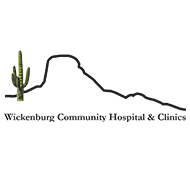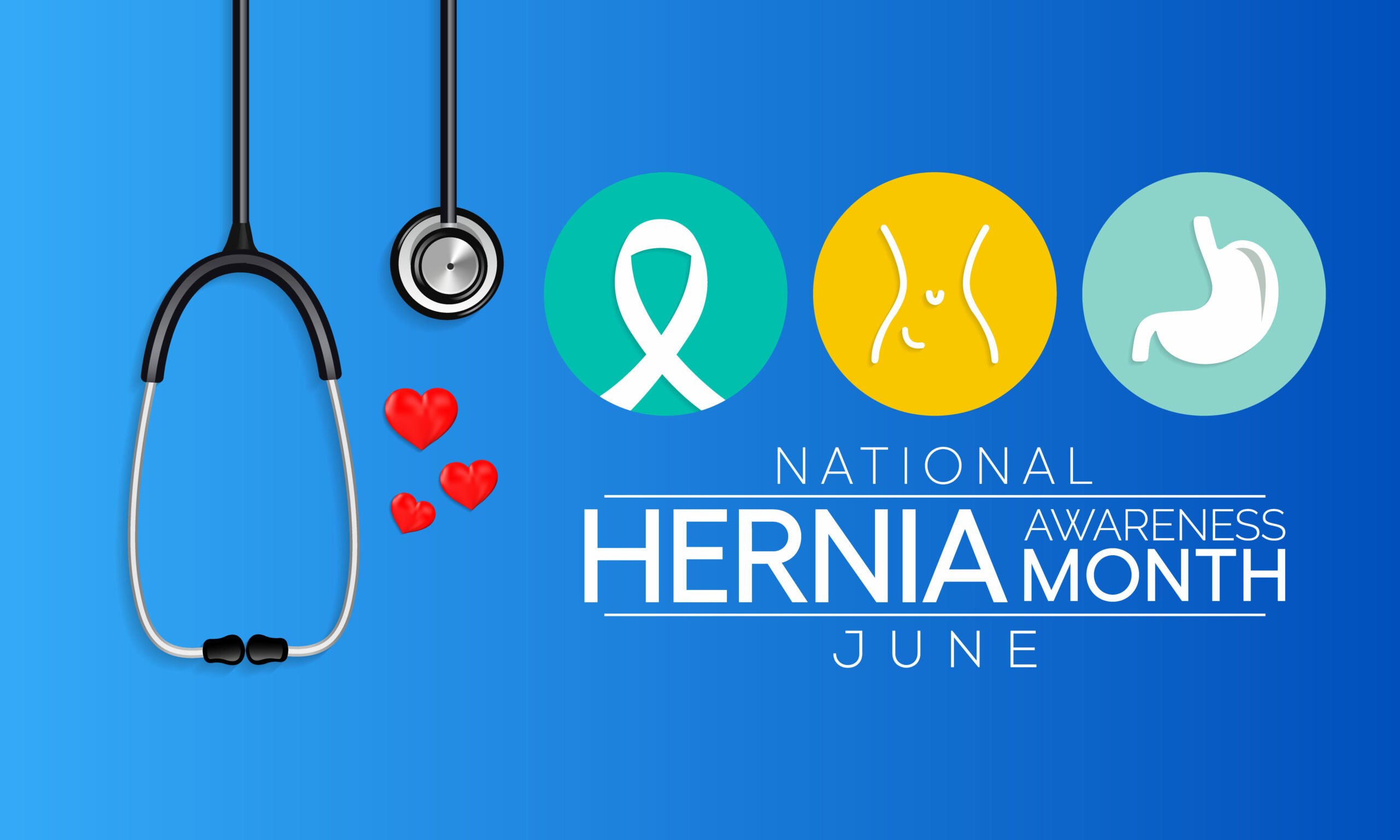Ten percent of us will develop a hernia during our lifetime. They can be incredibly painful, and that pain can become worse with any activity putting a strain on the abdomen. June is designated National Hernia Awareness Month to raise public awareness about what causes hernias and how to treat them.
A hernia occurs when an internal organ or fatty tissue squeezes through a weak spot in surrounding muscle or connective tissue. There are several types of hernia including inguinal (inner groin), incisional (resulting from a surgical cut), femoral (outer groin), umbilical (belly button), and hiatal (upper stomach). Hernias can happen when there is muscle weakness present at birth and when there is separation of muscle due to an incision. Other causes include obesity, pregnancy, chronic cough, or chronic straining. The most common hernia is the inguinal hernia, a weakness in the muscle since birth. It is most common in men and usually presents as a lump or protrusion in the groin area. The protrusions are usually associated with a dull ache or increased pain with heavy lifting.
If left untreated a hernia will gradually increase in size allowing internal organs such as the small or large intestines to protrude through the hernia and become more painful. Sometimes the muscle will trap the bowel within it. This is called an incarcerated hernia. Sometimes an incarcerated hernia could lead to a strangulated hernia where the blood supply to the bowel is cut off causing the bowel to become gangrenous. When this happens, an emergency operation is necessary to repair the hernia and remove the gangrenous bowel.
In most cases a hernia repair is an outpatient procedure. So, there is no need to spend the night in the hospital. The most common way to repair a hernia is with mesh. The mesh is a thin sheet of synthetic material fitted to overlap the hernia. Over the next 3 months the mesh becomes incorporated in the surrounding tissue making a strong repair and a decreased likelihood of the hernia recurring.
Robert Ripley, MD, FCAS , board-certified general surgeon and a fellow of American College of Surgeons, practices in the Wickenburg Community Hospital Surgical Clinic at 519 Rose Lane and can provide you with quality hernia care. If you are suffering with a hernia, please visit wickhosp.com/general-surgery and request an appointment from the upper left corner of the page or call 928-684-5506.
, board-certified general surgeon and a fellow of American College of Surgeons, practices in the Wickenburg Community Hospital Surgical Clinic at 519 Rose Lane and can provide you with quality hernia care. If you are suffering with a hernia, please visit wickhosp.com/general-surgery and request an appointment from the upper left corner of the page or call 928-684-5506.




